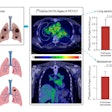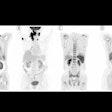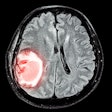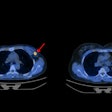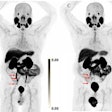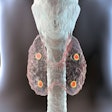Dear Molecular Imaging Insider,
Exciting advances continue to occur in the development of new radiopharmaceuticals to detect Alzheimer's disease, and we're pleased to feature some of the latest work in this edition's Insider Exclusive.
A German company that's been developing a radiopharmaceutical for the detection of tau deposition -- which has been linked to the development of Alzheimer's disease -- has presented the latest findings with the tracer in human patients. In a small patient group, the researchers found that there was uptake of the tracer in regions of the brain associated with Alzheimer's.
In other news, a major step forward in the imaging of Alzheimer's disease happened last month when the U.S. Food and Drug Administration (FDA) approved the radiopharmaceutical flortaucipir F-18 for imaging tau pathology on PET scans. The FDA said the approval was the first for a radiopharmaceutical to specifically target tau pathology.
Flortaucipir will be marketed as Tauvid, and it should give molecular imaging specialists another weapon in their arsenal to detect Alzheimer's disease, along with existing radiopharmaceuticals that target amyloid. Stay tuned for more news about this exciting development.
Meanwhile, a team of researchers from New York City investigated the use of PET/MRI for patients referred for mitral valve surgery. PET/MRI was able to detect signs of degenerative mitral valve prolapse and FDG uptake, which the group saw as a surrogate marker for myocardial inflammation and/or ischemia.
Other important developments in molecular imaging and nuclear medicine include research on a SPECT agent that could help identify DNA damage from radiation therapy treatments, as well as a PET technique for identifying early-stage Alzheimer's disease by imaging the presence of a protein in the brain.
Researchers from Israel reported their results with an F-18 prostate-specific membrane antigen (PSMA) radiopharmaceutical for use with PET to detect prostate cancer -- they believe it could be an alternative to gallium-68 PSMA agents. And another new PET tracer -- called RO-948 -- is showing potential for diagnosing Alzheimer's disease, according to a study by Swedish and Dutch researchers.
Finally, since our last communication with you, the Society of Nuclear Medicine and Molecular Imaging (SNMMI) has announced that its annual meeting, originally scheduled for New Orleans this month, will now take place online July 11-14. Rest assured that no matter the venue, you'll be able to follow all the proceedings in your Molecular Imaging Community.










